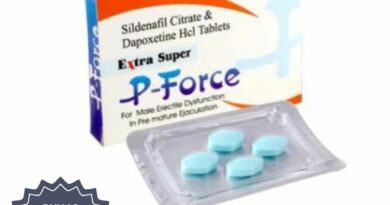Best Non-Medicated Solutions for Soothing Sore Muscles
Sore muscles are a common issue for many people, whether you’re an athlete, a fitness enthusiast, or someone who simply overdid it during a weekend project. While medications like pain relievers can offer quick relief, they aren’t always the best long-term solution. Fortunately, there are plenty of non-medicated methods to soothe sore muscles effectively.
These approaches not only alleviate discomfort but also promote recovery and overall well-being. Below, we’ll explore the best non-medicated solutions for soothing sore muscles, backed by science and practical experience.
1. Rest and Recovery
One of the simplest yet most effective ways to soothe sore muscles is to give your body time to rest. When you push your muscles too hard, tiny tears occur in the muscle fibers, leading to soreness. Rest allows your body to repair these tears naturally.
- Active Recovery: Light activities like walking or gentle stretching can improve blood flow to the muscles, speeding up recovery without causing additional strain.
- Sleep: Aim for 7-9 hours of quality sleep each night. During sleep, your body releases growth hormones that aid in muscle repair and recovery.
2. Hydration
Dehydration can exacerbate muscle soreness and delay recovery. Water plays a crucial role in transporting nutrients to your muscles and flushing out toxins that contribute to soreness.
- Drink Plenty of Water: Aim to drink at least 8-10 glasses of water daily, and increase your intake if you’re physically active or in a hot climate.
- Electrolytes: Replenish electrolytes lost through sweat by consuming beverages like coconut water or adding a pinch of salt to your water.
3. Heat Therapy
Applying heat to sore muscles can provide immediate relief by increasing blood flow and relaxing tight tissues. Heat therapy is particularly effective for chronic muscle pain or stiffness.
- Warm Compress: Use a warm towel or heating pad on the affected area for 15-20 minutes.
- Hot Bath or Shower: Soaking in a warm bath or standing under a hot shower can help relax your entire body.
4. Cold Therapy
Cold therapy is ideal for acute muscle soreness or inflammation, such as after an intense workout. It reduces blood flow to the area, minimizing swelling and numbing pain.
- Ice Packs: Apply an ice pack wrapped in a cloth to the sore area for 15-20 minutes. Repeat every 1-2 hours as needed.
- Cold Baths: Some athletes swear by ice baths to reduce muscle soreness after intense training sessions.
- Cold Compress: Use a cold gel pack or a bag of frozen vegetables for quick relief.
5. Massage
Massage therapy is a proven method for relieving muscle soreness. It improves circulation, reduces tension, and promotes relaxation.
- Self-Massage: Use your hands, a foam roller, or a massage ball to target sore muscles. Apply gentle pressure and focus on areas of tightness.
- Professional Massage: Consider booking a session with a licensed massage therapist for deeper relief.
- Massage Tools: Invest in tools like percussion massagers or vibrating massage guns for at-home use.
6. Stretching
Gentle stretching can alleviate muscle tightness and improve flexibility, reducing soreness over time.
- Yoga: Incorporate yoga into your routine to improve flexibility, balance, and muscle recovery.
7. Epsom Salt Baths
Epsom salt, or magnesium sulfate, is a popular remedy for sore muscles.
- How to Use: Add 1-2 cups of Epsom salt to a warm bath and soak for 20-30 minutes.
- Frequency: Use this remedy 2-3 times a week for best results.
8. Foam Rolling
Foam rolling, or self-myofascial release, is a technique that helps release muscle tightness and improve blood flow.
- How to Use: Roll the foam roller over the sore muscle group, pausing on any tender spots for 20-30 seconds.
- Benefits: Foam rolling can reduce muscle soreness, improve flexibility, and enhance recovery.
9. Proper Nutrition
What you eat plays a significant role in muscle recovery. Certain nutrients can help reduce inflammation and support muscle repair.
- Protein: Consume lean protein sources like chicken, fish, eggs, or plant-based options like beans and lentils to aid muscle repair.
- Anti-Inflammatory Foods: Incorporate foods rich in omega-3 fatty acids (salmon, walnuts) and antioxidants (berries, leafy greens) to reduce inflammation.
- Magnesium-rich foods: Foods like spinach, almonds, and dark chocolate can help relax muscles.
10. Compression Therapy
Compression garments apply gentle pressure to your muscles, improving circulation and reducing soreness.
- Benefits: Compression therapy can reduce swelling, improve blood flow, and speed up recovery.
11. Topical Remedies
Natural topical treatments can provide soothing relief without the need for oral medications.
- Arnica Gel: Derived from the arnica plant, this gel is known for its anti-inflammatory properties.
- Essential Oils: Dilute oils like peppermint, lavender, or eucalyptus with a carrier oil and massage into sore muscles.
- CBD Creams: Cannabidiol (CBD) creams are gaining popularity for their potential to reduce pain and inflammation.
12. Movement and Light Exercise
- Low-Impact Activities: Try swimming, cycling, or yoga to keep your body moving without straining sore muscles.
13. Posture and Ergonomics
- Adjust Your Workspace: Ensure your desk, chair, and computer are set up to support good posture.
- Strengthen Core Muscles: A strong core can help maintain proper posture and reduce strain on other muscles.
14. Mind-Body Techniques
Stress and tension can manifest as muscle soreness. Mind-body techniques can help you relax and reduce muscle tightness.
- Meditation: Practice mindfulness meditation to reduce stress and promote relaxation.
- Deep Breathing: Deep breathing exercises can help release tension in your muscles.
- Tai Chi: This gentle form of exercise combines movement and relaxation to improve muscle function and reduce soreness.
15. Herbal Teas
Certain herbal teas have anti-inflammatory and muscle-relaxing properties.
- Chamomile Tea: Known for its calming effects, chamomile can help relax sore muscles.
- Ginger Tea: Ginger has natural anti-inflammatory properties that can reduce muscle pain.
- Turmeric Tea: Curcumin, the active compound in turmeric, is a powerful anti-inflammatory agent.
16. Hydrotherapy
Hydrotherapy involves using water at different temperatures and pressures to relieve muscle soreness.
- Water Exercises: Swimming or water aerobics can provide a low-impact workout that soothes sore muscles.
17. Acupressure and Acupuncture
These traditional Chinese medicine techniques can help relieve muscle soreness by targeting specific pressure points.
- Acupressure: Apply pressure to specific points on your body using your fingers or a tool.
- Acupuncture: Visit a licensed acupuncturist for targeted relief.
18. Cool-Down
- Cool-Down: After exercise, take time to cool down with light stretching and deep breathing.
19. Stay Consistent
Consistency is key to preventing and managing muscle soreness. Regular exercise, proper nutrition, and self-care practices can keep your muscles healthy and resilient.
Conclusion
Sore muscles don’t have to derail your day or your fitness goals. By incorporating these non-medicated solutions into your routine, you can effectively soothe sore muscles and promote faster recovery. From rest and hydration to massage and proper nutrition, these methods offer a holistic approach to muscle care. With these strategies, you’ll be able to tackle soreness head-on and get back to doing what you love.




